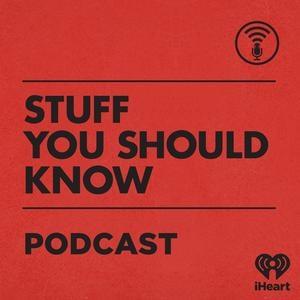
In this episode of Radiolab, producer Rachel Qsick discusses her favorite episode, “The Cataclysm Sentence,” as she prepares to leave the show and move to Australia. The episode explores the idea of a sentence that could cause a cataclysmic event and features interviews with linguists and experts in various fields. Rachel explains how the idea for the episode came about and how the team worked together to create it. The episode is a mix of thought-provoking ideas and silly moments, reflecting the range of topics and tones that Radio Lab covers. Rachel’s departure from the show is bittersweet, but she is excited for new opportunities and challenges in Australia.
In this episode of Radiolab, producer Rachel Qsick discusses her favorite episode, “The Cataclysm Sentence,” as she prepares to leave the show and move to Australia. The episode explores the idea of a sentence that could cause a cataclysmic event and features interviews with linguists and experts in various fields. Rachel explains how the idea for the episode came about and how the team worked together to create it. The episode is a mix of thought-provoking ideas and silly moments, reflecting the range of topics and tones that Radio Lab covers. Rachel’s departure from the show is bittersweet, but she is excited for new opportunities and challenges in Australia.
The episode delves into the concept of the atomic hypothesis, inspired by a question posed by physicist Richard Feynman. Feynman’s answer to the question of what one sentence would contain the most information and the least words is the atomic hypothesis: everything is made of atoms, atoms are in perpetual motion, and atoms interact with each other. This concise yet powerful concept forms the building blocks of the universe and leads to insights on various scientific phenomena. The episode features a lecture by Richard Feynman on the atomic hypothesis and explores its implications.
The episode highlights the value of the wisdom and experiences of older generations. It touches on the speaker’s personal journey of seeking out anecdotes and stories from family members to learn more about a loved one who has passed away. Discovering new things about a loved one can feel like finding a hidden gem and provides a deeper understanding of their life. The episode emphasizes the importance of preserving the memories and wisdom of loved ones before they are gone.
The podcast team explores the question of what one sentence individuals would leave for the next generation if the world were to end tomorrow. Artists, writers, philosophers, historians, chefs, and musicians share their perspectives on the important message they would convey. The responses range from acknowledging mortality to emphasizing the interconnectedness of perspectives and the future of food. The episode showcases the diverse and thought-provoking insights from various individuals.
The episode delves into the role of fear in shaping geopolitics and individuals’ willingness to try new things and meet new people. It explores the idea that fear is a choice and can lead to conflict, aggression, and hate. The episode highlights that while fear can be compelling as a motivation, it is up to individuals to choose how they respond to it. The discussion on fear raises questions about its impact on personal and societal decisions.
The episode explores the dilemma of leaving behind highly evolved science facts and their potential consequences. It references the moral dilemma faced by scientists during the Manhattan Project in creating the atomic bomb. The episode also reflects on the distortion and potential uselessness of passing along little words of wisdom if overemphasized. It emphasizes the preservation of cultural heritage through traditional music and instruments as a way to connect with the past. The episode introduces the “primordial chord,” created by composer Missy Mizzouli, which encourages collaboration and connection in the future.
As Rachel Qsick prepares to leave the show and move to Australia, she reflects on her favorite episode, “The Cataclysm Sentence,” and the journey of creating it. The episode explores the concept of a sentence that could cause a cataclysmic event and features interviews with experts in various fields. It delves into the atomic hypothesis, the wisdom of older generations, the importance of leaving a meaningful mark, and the power of fear. The episode showcases the thought-provoking and diverse perspectives of artists, writers, philosophers, historians, chefs, and musicians. As Rachel embarks on new opportunities and challenges, she expresses bittersweet feelings about leaving the show but remains excited for the future.